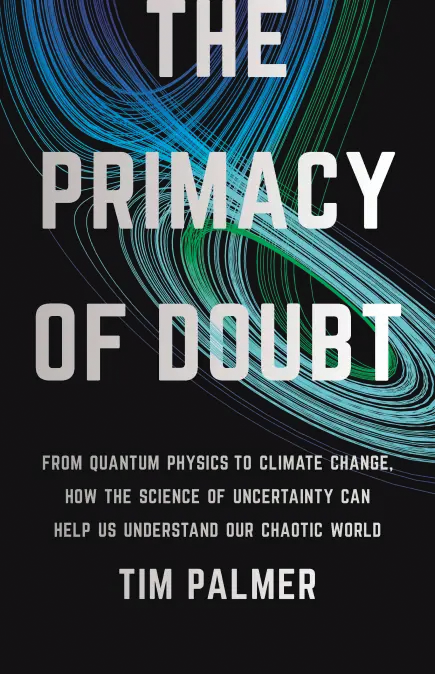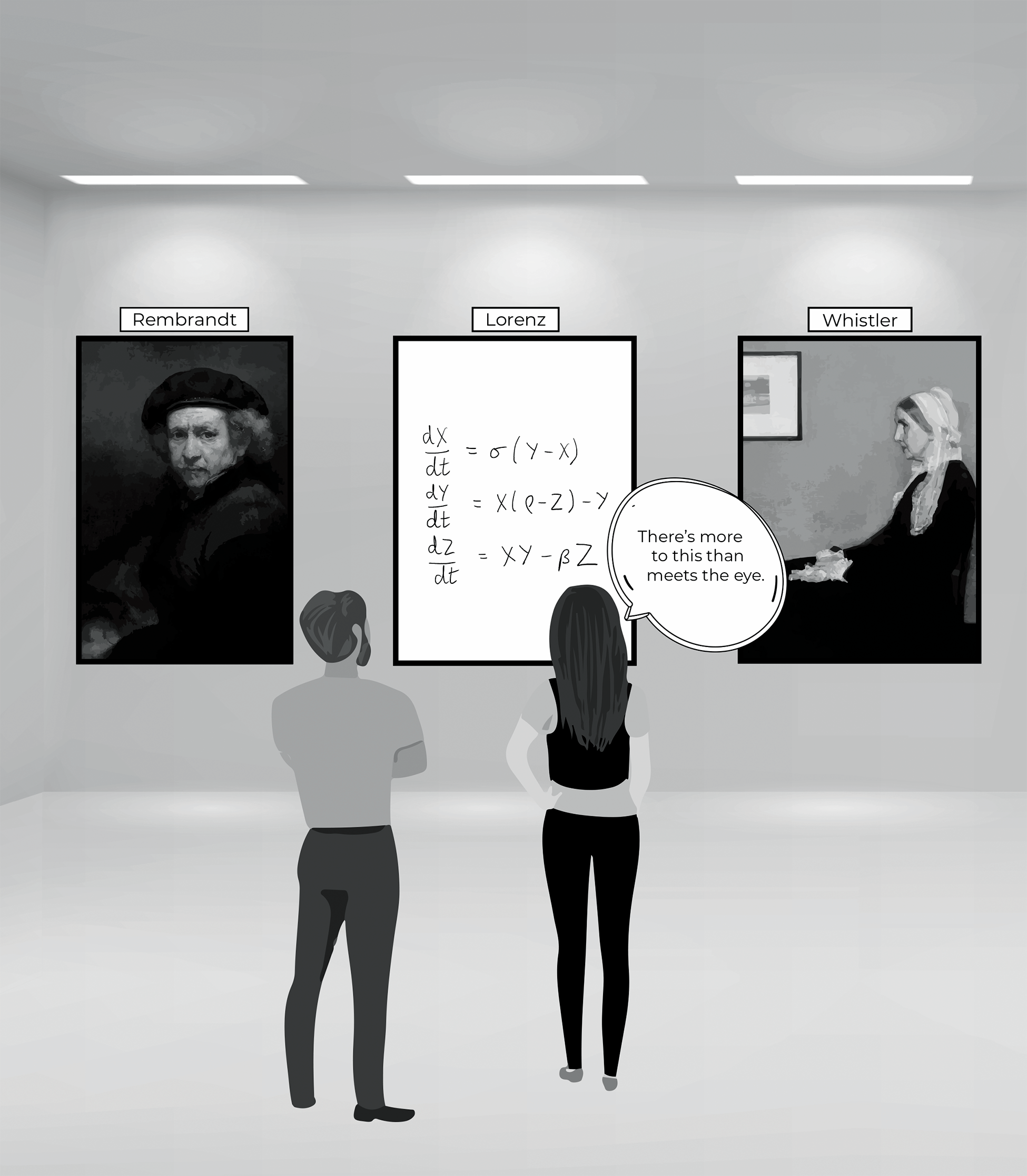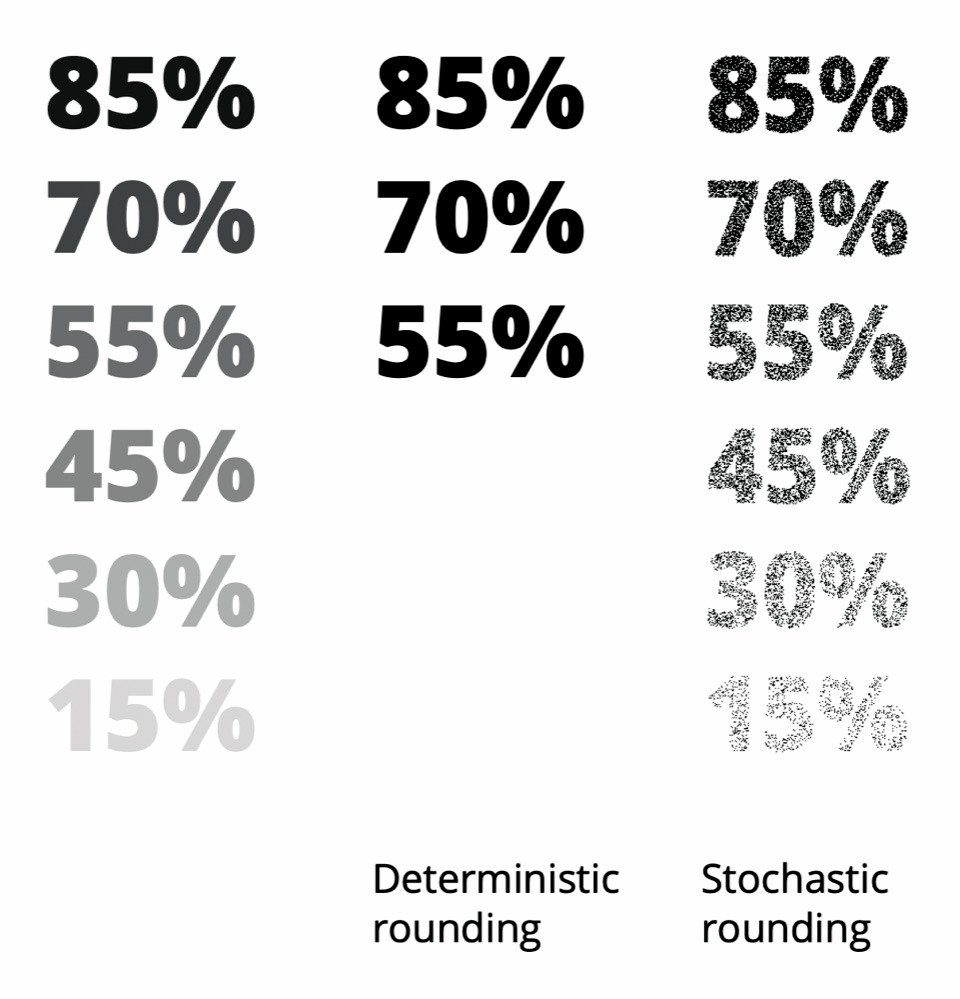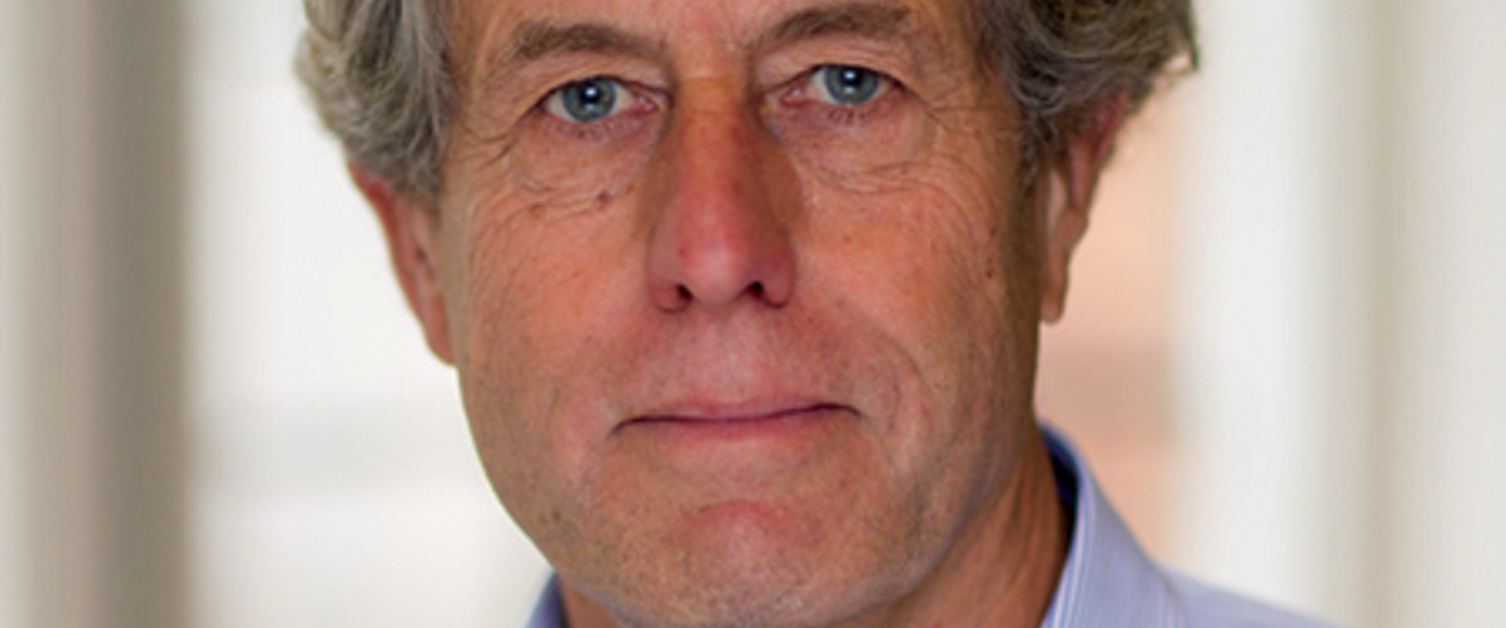Interview: Understanding the Science of Uncertainty
- Interview, Readings, BAMS
- By AMS Staff
- Feb 10, 2023
Book Cover: The Primacy of Doubt by Tim Palmer
Understanding the Science of Uncertainty
BAMS recently spoke with Tim Palmer about his new book, The Primacy of Doubt: From Quantum Physics to Climate Change, How the Science of Uncertainty Can Help Us Understand Our Chaotic World. A Royal Society research professor in the Department of Physics at the University of Oxford. Palmer’s research has covered a variety of fields, from stratospheric dynamics to climate change (where, as lead author, he was acknowledged as contributing to the IPCC award of the Nobel Peace Prize). Two themes that underpin all Palmer’s work are uncertainty and nonlinearity. He is an Honorary Fellow of AMS and recipient of the AMS Charney and Rossby medals. In 2022 he was inducted into the U.S. National Academy of Sciences as an international member. He also won the Dirac Gold Medal of the Institute of Physics, the Silver Medal of the European Meteorological Society, and the Richardson Medal from the European Geosciences Union.

Why do this book?
The prosaic reason is that the Covid lockdowns gave me the opportunity to write a popular science book, something that I had been thinking about for quite a few years.
At a deeper level, I’ve had quite a varied research career and wanted to write something that tried to bring it all together—there is a biographical element to the book. As a child I was fascinated by the stars (and cursed the English weather for being so unhelpful when trying to look at them!). For my Ph.D. I did research on the energy momentum of gravitational fields in general relativity theory and on the related unsolved problem of how to quantize gravity. However, by the end of my Ph.D. I changed fields to meteorology and worked in several areas: from co-discovering the world’s largest breaking waves in the stratosphere, to pioneering the development of ensemble forecast methods for medium-range and seasonal prediction. I realized that there are two themes that pretty much underpin every research activity I have engaged in: nonlinearity and uncertainty. I thought that I would try to write a science book with these two themes in mind. Since the notion of nonlinearity will seem a bit abstract to a layperson, I focused on uncertainty in the title—which was inspired by a quote from James Gleick’s masterful biography of Richard Feynman. But of course, nonlinearity and uncertainty are highly interrelated, as I hope comes out clearly in the book.
Who is the book for?
Hopefully anyone. I was recently interviewed by the editor of the Oxford alumni magazine, a historian by profession. He said how much he enjoyed and indeed was inspired reading the book. I was mightily relieved that it was readable by someone with no science background at all. When I was writing the book, I had my brother in mind as a typical reader: someone with no professional science background—he was the European editor of the Guardian newspaper for many years—but who has become extremely interested in scientific matters.

What obstacles did you face while writing it?
When you want to write a book, you must find publishers willing to publish it. As an unknown in popular science writing, this was not straightforward for me. In the end, with advice, I managed to persuade an agent (Max Brockman) to take me on. This involved writing book summaries and sample chapters at a time when not everything about the book was completely settled in my mind. We went through numerous iterations before Max was happy to send out the proposal to potential publishers. Fortunately, he found two excellent publishers, Basic Books in the United States and Oxford University Press (OUP) in the United Kingdom.
Writing the book was mostly fun although the editors at Basic and OUP didn’t like the structure of the first draft and I ended up pretty much rewriting the book a second time. As mentioned, the Covid lockdowns gave me the time to write the book twice over. Otherwise, I’m not sure I would have managed it.
What did you learn?
I am neither an expert on economic models, Covid models, nor conflict prediction models, and had to learn about these in writing the relevant chapters. I feel a little nervous that I’ll be at the receiving end of angry emails from economists after what I say about economic models. They will no doubt tell me that as a nonexpert I shouldn’t be pontificating about their models and methods.
One topic I agonized over was whether I should set out my view about tackling climate change. On the one hand, this involves value judgments, and as a meteorologist I have no special expertise in such matters. On the other hand, I worried that people may interpret my emphasis on the importance of estimating uncertainty as an excuse to do nothing. Indeed, one reviewer of the book suggested that the title of my book may give succor to the “Merchants of Doubt” that Conway and Oreskes have expertly written about. That’s certainly not my intention, but it made me sensitive to the issue. So I decided I would give my personal opinion. In so doing I ended up reading up a bit about the concept of a “value of a statistical life” (VSL), about which I’d previously known almost nothing. Simple cost/loss models based on VSL suggested that taking action to reduce the risk of dangerous climate change is really a bit of a no-brainer, even given the uncertainties. But again, I make this latter point as a member of the human species rather than as a climate scientist per se.
What surprised you?
I think what surprised me most was how much I enjoyed writing the book. I could engross myself in writing a chapter oblivious of time passing. I realized that if I was shipwrecked on a desert island with only typewriter and paper (no point having a laptop unless I have some solar panels as well) then I could happily spend the days and years writing stuff.
What are the implications of this work?
I suppose it’s that we have to treat uncertainty as a topic of primary focus and not as an afterthought. I am absolutely delighted that early in 2023, The European Centre for Medium-Range Weather Forecasts (ECMWF)’s ensemble grid will increase to 9 kilometers, the same as the high-resolution deterministic forecast. Effectively there will be no separate high-res deterministic forecast at ECMWF. This is certainty in keeping with the primary message of the book, and I hardly believed I would live to see this day.
On the other hand, I am less convinced the Primacy of Doubt message is fully embraced in the climate change community. Many in our community seem to think that model uncertainty can be adequately embraced by a Climate Model Intercomparison Project (CMIP) multimodel ensemble, an ensemble of lowish resolution GCMs each with different parametrizations. But if processes like deep convection are not parametrizable, this may not be an adequate representation of uncertainty. A particular problem comes when all the CMIP models agree about something. Does that mean this “something” will happen for sure, or does it mean that we simply haven’t represented all sources of uncertainty in our ensembles? Particularly when looking at extreme events, I tend to the latter.

What comes next?
I do have another popular book in mind, but I am in no rush to write it quite yet. The issue of uncertainty in climate change modeling is perhaps uppermost in my mind at present. My own belief is that to really tackle this problem, we need something like a “CERN for climate change”: one or more federated institutes around the world with 100% dedicated exascale computers running ensembles of high-resolution climate models. Given the importance of climate change for global society and the relatively small amounts of money needed to fund such institutes, this strikes me as another no-brainer. But it won’t happen unless our community can speak with one voice about this issue. Currently we don’t, and that bothers me.
* For more content from the Bulletin of the American Meteorological Society, please click here.
